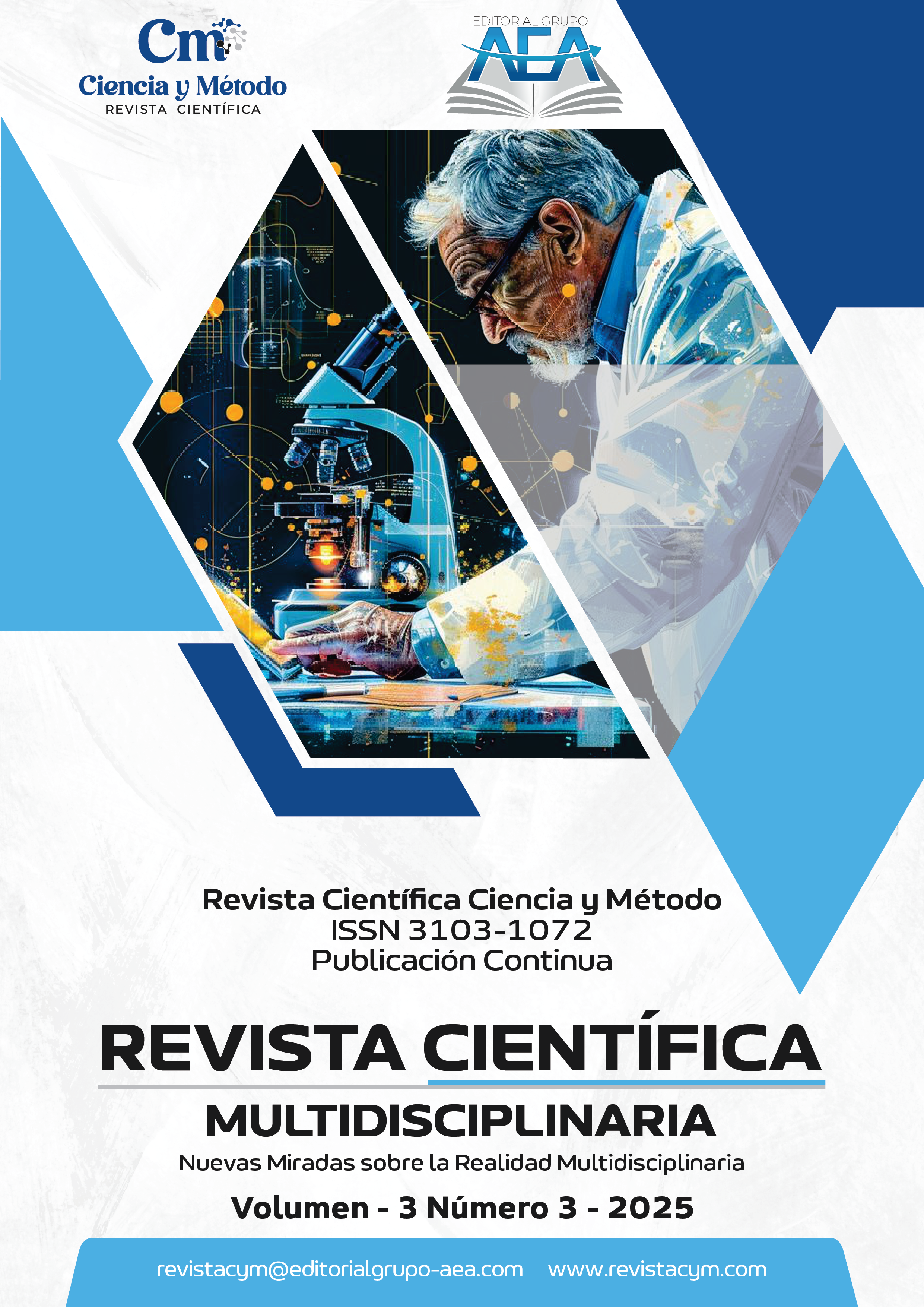Digital technologies in early childhood education: Teachers' perceptions and their application in literacy learning
Main Article Content
Abstract
This study addresses the integration of digital technologies in early childhood education, focusing on their influence on literacy learning and on teachers' perceptions that mediate their implementation. Through a qualitative literature review of studies published between 2017 and 2025, relevant academic sources from databases such as Scopus and Web of Science were analyzed, selecting empirical research, systematic reviews, and meta-analyses that explore both the pedagogical impact of ICT and teachers' attitudes. The results show that teacher perceptions, determined by factors such as prior training, institutional context, and geographical gaps, directly influence the adoption of technologies in the classroom. Likewise, it is found that the use of apps, interactive whiteboards, and multimedia resources improves skills such as phonological awareness, segmentation, and reading motivation, especially when there is active teacher mediation. The research concludes that technology, although promising, only generates meaningful learning if it is integrated with pedagogical intent, institutional support, and ongoing teacher training.
Downloads
Article Details
Section

This work is licensed under a Creative Commons Attribution-NonCommercial 4.0 International License.
How to Cite
References
Aljaberi, N. (2021). Perceptions and Beliefs of the Teachers of Kindergarten and the First Primary Stage for Employing Digital Technologies in the Education Process in Jordan. International Journal of Progressive Education, 17(5), 87-101. https://doi.org/10.29329/ijpe.2021.375.7 DOI: https://doi.org/10.29329/ijpe.2021.375.7
Buell, A. (2018). Using technology to motivate young readers in the age of digitalization. University of Iowa Education Blog.
Carvalhais, L., Leitão, C., & Moura, O. (2025). Reading and writing development in inclusive preschool settings: The role of digital tools. Journal of Early Childhood Research, 23(1), 45–62.
Fajardo-Garcia, L. M. (2025). Estrategias de enseñanza basadas en el contexto sociocultural en la asignatura de educación para la ciudadanía. Revista Científica Zambos, 4(1), 61-73. https://doi.org/10.69484/rcz/v4/n1/76 DOI: https://doi.org/10.69484/rcz/v4/n1/76
Gjelaj, M., Buza, K., Shatri, K., & Zabeli, N. (2020). Digital technologies in early childhood: Attitudes and practices of parents and teachers in Kosovo. International Journal of Instruction, 13(1), 165–184. https://doi.org/10.29333/iji.2020.13111a DOI: https://doi.org/10.29333/iji.2020.13111a
Huamán Sánchez, K. (2025). Tecnologías digitales para el aprendizaje que utilizan los docentes de Nivel Inicial en instituciones educativas de Lima Metropolitana [Tesis de licenciatura, Universidad César Vallejo]. Repositorio institucional UCV.
Lectoescritura en la era digital: Estrategias y desafíos para niños de 5 a 6 años – Una revisión de la literatura. (2025). Revista Latinoamericana de Tecnología Educativa, 24(2), 34–50.
Li, M. (2025). Exploring the digital divide in primary education: A comparative study of urban and rural mathematics teachers’ TPACK and attitudes towards technology integration in post pandemic China. Education and Information Technologies, 30, 1913–1945. https://doi.org/10.1007/s10639-024-12890-x DOI: https://doi.org/10.1007/s10639-024-12890-x
Lin, R., Chu, J., Yang, L., Lou, L., Yu, H., & Yang, J. (2023). What are the determinants of the rural–urban divide in teachers’ digital teaching competence? Humanities and Social Sciences Communications. https://doi.org/10.1057/s41599-023-01933-2 DOI: https://doi.org/10.1057/s41599-023-01933-2
Liu, S., Reynolds, B. L., Thomas, N., & Soyoof, A. (2024). The use of digital technologies to develop young children’s language and literacy skills: A systematic review. SAGE Open. https://doi.org/10.1177/21582440241230850 DOI: https://doi.org/10.1177/21582440241230850
Merjovaara, O., Eklund, K., Nousiainen, T., Karjalainen, S., Koivula, M., Mykkänen, A., & Hämäläinen, R. (2024). Early childhood pre service teachers’ attitudes towards digital technologies and their relation to digital competence. Education and Information Technologies, 29, 14647–14662. https://doi.org/10.1007/s10639-023-12237-y DOI: https://doi.org/10.1007/s10639-023-12237-y
NAEYC. (2023). Technology and media in early childhood education. Young Children.
Neumann, M. M. (2018). Using tablets and apps to enhance emergent literacy skills. Computers & Education, 126, 310–321. https://doi.org/10.1016/j.ecresq.2017.10.006 DOI: https://doi.org/10.1016/j.ecresq.2017.10.006
Nicolás Cano, M. M. (2024). Percepción docente sobre la integración de las TIC en Educación Infantil: beneficios, desafíos y necesidades formativas. Revista Internacional de Investigación en Didáctica de las Ciencias y la Innovación Educativa.
Niklas, F., Birtwistle, E., Mues, A., & Wirth, A. (2024). Learning apps at home prepare children for school. Frontiers in Education. https://doi.org/10.1111/cdev.14184 DOI: https://doi.org/10.1111/cdev.14184
Paul, C. D., Manning, A. R., & Fraser, S. (2023). Incorporating technology into instruction in early childhood settings: A review. Early Childhood Education Journal, 51(2), 213–228.
Reading Rockets. (s. f.). Apps for literacy and learning. Reading Rockets.
Saavedra-Mera, K. A., Valverde-Medina, L. M., Caicedo-Perlaza, L. C., & Puyol-Cortez, J. L. (2024). El estudio de la termodinámica química desde una perspectiva pedagógica. Journal of Economic and Social Science Research, 4(3), 89–104. https://doi.org/10.55813/gaea/jessr/v4/n3/122 DOI: https://doi.org/10.55813/gaea/jessr/v4/n3/122
Salmerón, L., & Casquete Alemany, S. (2024). Pantallas en el aula: ¿para qué? Hoy por Hoy Valencia. Cadena SER.
Torres-Roberto, M. A., & Solano-Camargo, S. P. (2025). La baja natalidad en Colombia y su impacto en la educación pública y privada. Revista Científica Zambos, 4(2), 240-264. https://doi.org/10.69484/rcz/v4/n2/120 DOI: https://doi.org/10.69484/rcz/v4/n2/120
Vimos-Buenaño, K. E., Viteri-Ojeda, J. C., Naranjo-Sánchez, M. J., & Novillo-Heredia, K. H. (2024). Uso de la inteligencia artificial en los procesos de investigación científica, por parte de los docentes universitarios. Journal of Economic and Social Science Research, 4(4), 215–236. https://doi.org/10.55813/gaea/jessr/v4/n4/143 DOI: https://doi.org/10.55813/gaea/jessr/v4/n4/143





